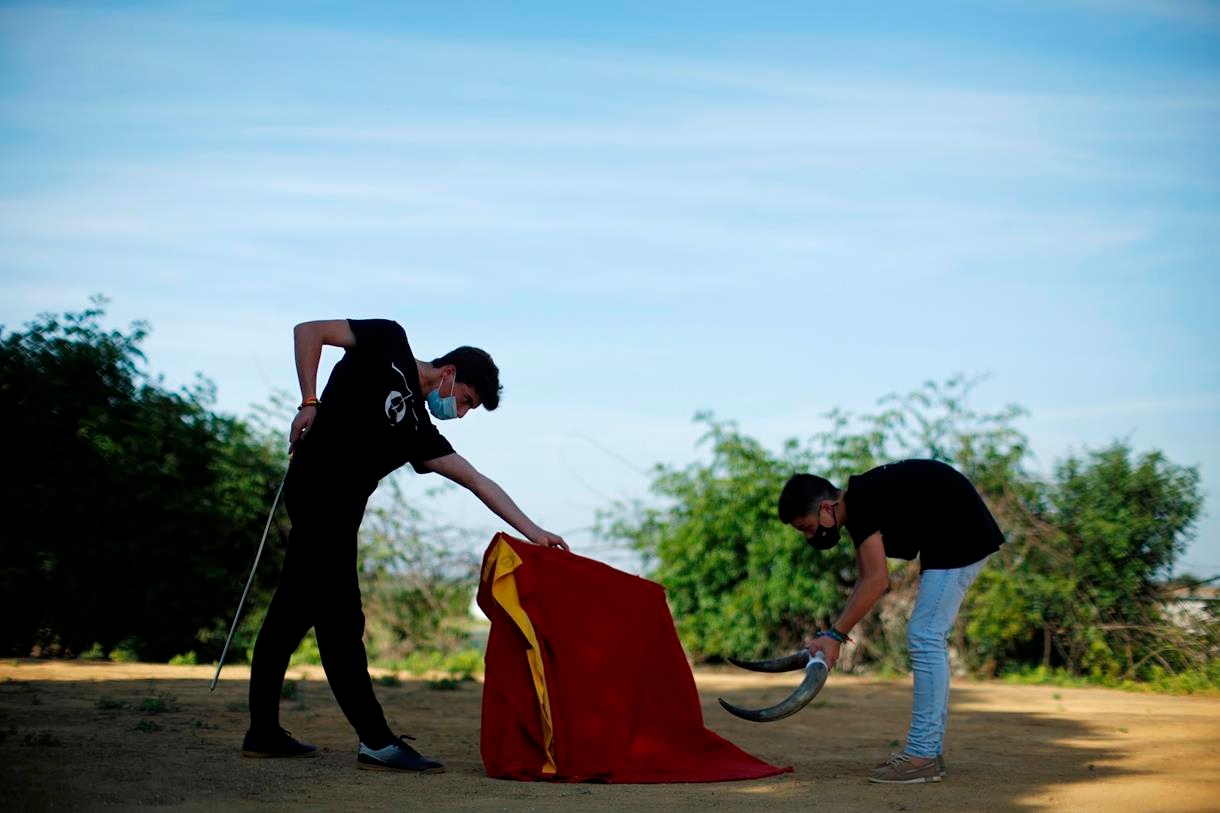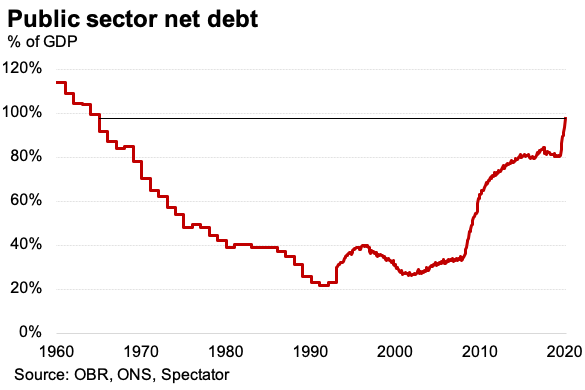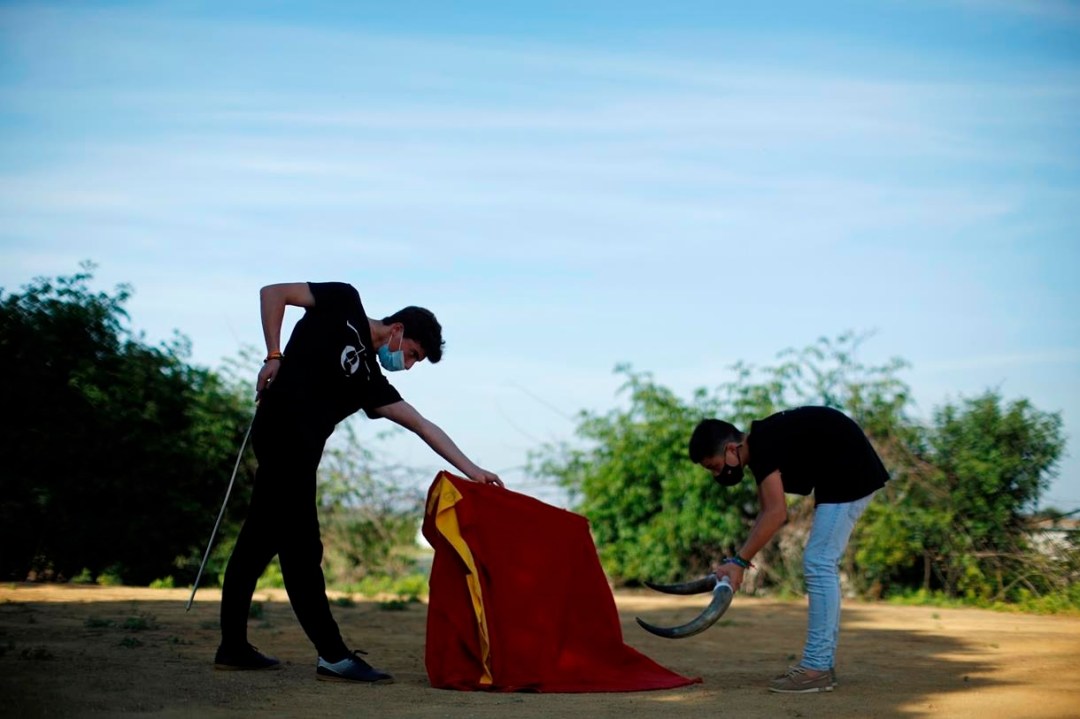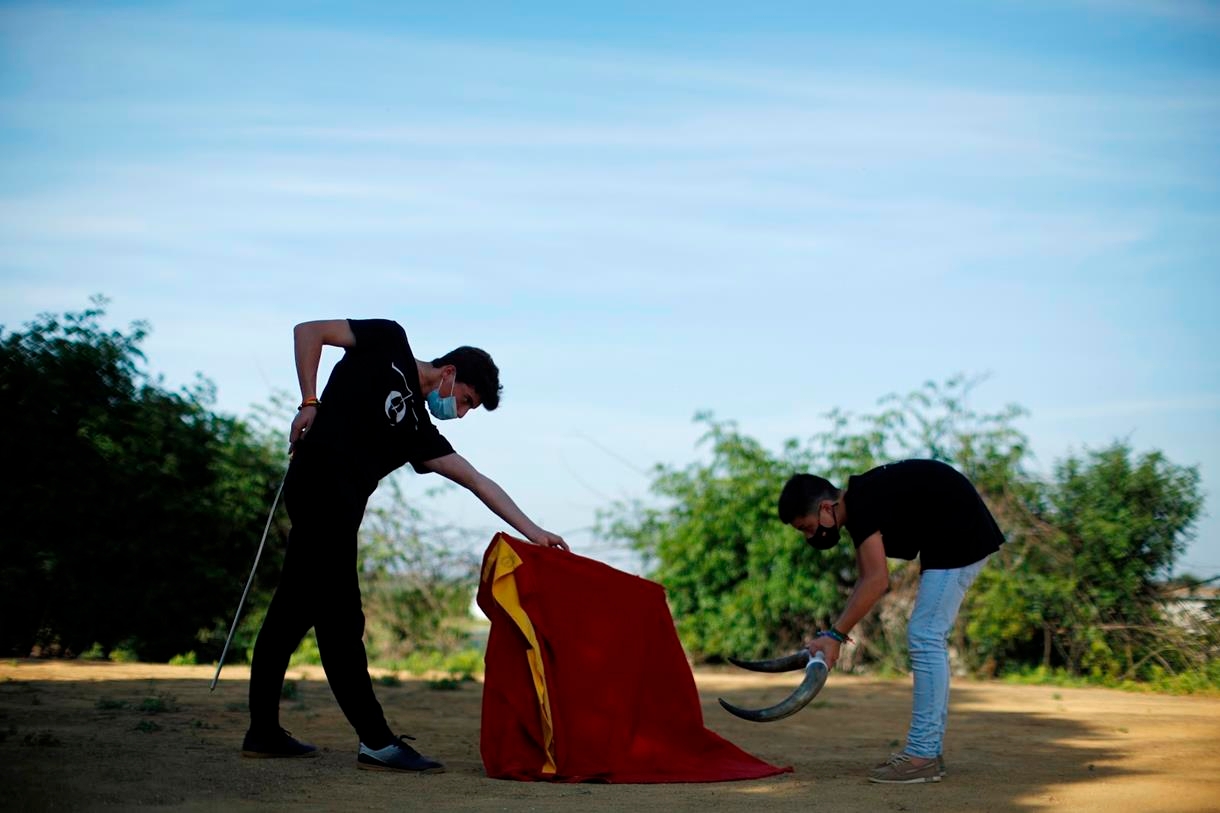The Spectator brings you the latest insight, news and research from the front line. Sign up here to receive this briefing daily by email, and stay abreast of developments both at home and abroad.
News and analysis
- The UK’s two metre social distancing rule could be relaxed according to medical director of Public Health England Yvonne Doyle, speaking at a science and technology committee hearing.
- The UK government borrowed £62.1 billion in April, sending net debt to a record 98 per cent of GDP. Details below.
- Foreigners and UK nationals will be fined £1,000 if they refuse to self-isolate for 14 days on arrival in Britain. They must share contact details with authorities and will then be subject to spot checks in homes by health officials and police.
- Some 1,000 furloughed Carluccio’s workers have been laid off, as it decided most of its 71 restaurants would not survive when the economy reopens.
- Trials have begun on a Covid-19 antigen test that gives results in 20 minutes.
- Homeowners can extend mortgage payment holidays for three more months.
- Asymptomatic people will have to self-isolate for two weeks if they come into ‘high-risk’ contact with someone who tested positive for Covid-19, according to the Health Service Journal.
- Transport for London will reintroduce bus fares from Saturday.
- The National Trust in Scotland is to give away more than 15,000 Easter eggs. The chocolate was not collected during the Trust’s annual Easter egg hunt because of lockdown.

UK debt jumps to 98 per cent of GDP
How much will the Covid-19 crisis cost? With the economy in freefall, it’s hard to guess – but the first hard data today shows that even the worst-case scenarios might be too optimistic. The net debt for April stood at £1,887.6 billion, or 98 per cent of GDP. It was pushed up by government departmental spending that jumped to £91.4 billion last month, vs £55.8 billion for April last year. That’s an increase of 64 per cent, and only £5.2 billion was the cost of the government’s job retention programme. That’s eight years’ progress of deficit reduction undone in a matter of weeks. Remarkably, VAT receipts were negative: the government refunded £900 million more than it took in. Strange days.
And the reaction of the markets? To shrug and invite the government to borrow even more. The yield on the five-year gilt fell 0.017 points to -0.017 per cent – so the Treasury is being paid to borrow. This will not help Rishi Sunak make the case for fiscal prudence. No. 10 (which has always tended to argue that the deficit is big enough to look after itself) will see the market’s reaction and ask: what’s the problem? As Fraser Nelson argues in his Daily Telegraph column, the problem is that a crippled economy will claim lives. For example, recent UK experience shows that every one per cent rise in unemployment causes a 2 per cent rise in the caseload of chronic disease. If this crash is as bad as the last one (at present, it’s far worse), it will mean almost half a million more cases of mental health problems and a million more people with chronic diseases. Poverty kills as surely as Covid-19 – but more quietly and in a way that’s clear only in retrospect.
As we discuss on the latest Coffee House Shots podcast, Rishi Sunak will not be able to point to the markets and say it’s time to balance the books. He’ll have to make the case for ending lockdown by expressing the economy in terms of public health and society.
Practice makes perfect

In words
I tested very positively in another sense. So this morning I tested positively toward negative, right. So no, I tested perfectly this morning. Meaning I tested negative. But that’s a way of saying it. Positively toward the negative.
– Donald Trump, when asked whether he had had a coronavirus test.
We have taken a precautionary approach to say 2 metres apart, full stop. We are still learning about the virus… We are aware of the international differences… and are looking at whether 2m is actually necessary or could it be reduced further.
– Yvonne Doyle, from Public Health England, on why the UK has doubled the 1 meter suggested by the WHO.
How would the UK fare in Germany’s lockdown test?
We are told that the UK’s R number – the rate of infection – is between 0.7 and 1. But it is calculated using hospital data that is two to three weeks old. There is a simpler and more up-to-date option, which is already being used in Germany and Ontario: link the lifting of lockdown measures to the number of infections per 100,000 population. Since 6 May, Germany has used a threshold of 50 cases per 100,000 people over the previous seven days. If we used this standard in England, every region would now be relaxing its lockdown. In the week to 15 May, the highest number of new infections was measured in the North East, with 18.9 per 100,000.
There is a weakness in using the German or Ontarian approach: the number of new infections being measured depends very much on the number of tests being undertaken. A country which embarks on mass testing of its population is going to show a much higher number of new infections per 100,000 than if (like Britain throughout much of this crisis) it only tests those who seek medical attention. Perhaps, instead, we should seek to set a threshold for hospitalisations per 100,000 – at a much lower rate than the German or Ontario thresholds. This is the suggestion of a group of Canadian infectious disease academics in a letter to the National Post this week. Compared with the R number it would have the benefit of being simple to understand and a lot more up to date.
Read Ross Clark’s full blog here on Coffee House.
Global news
- Donald Trump has said the US will not close again if the country is hit by a second wave of Covid-19. Meanwhile the President has been photographed wearing a face mask on a trip to Michigan.
- Only 7.3 per cent of Stockholm’s inhabitants had developed antibodies to Covid-19 by the end of April, according to a new study.
- Bulgaria will now allow arrivals from the Schengen Area.
- A 15-year-old girl in India has cycled 1,200 km in eight days while carrying her injured father home. The pair had been stuck in the city of Gurugram because of the country’s lockdown.
- Wilson Jerman, a former White House butler who served 11 consecutive presidents from John F. Kennedy, has died with coronavirus.
Datawatch

Our latest podcast
Research
As efforts to find treatments and vaccines for Covid-19 continue, there’s still an outstanding question: do antibodies stop you from getting the disease? A study from Harvard University has produced positive news. In a trial on macaques, researchers found the virus created ‘infection induced protective immunity against re-exposure in nonhuman primates’ – that is, antibodies that worked to fight off reinfection of the virus. Researchers emphasised the findings should be ‘interpreted cautiously’ as it is not known yet if they will translate from monkeys to humans, but early signs suggest antibodies in those who have already had the virus could prove successful in warding off its return.
Coronomics
- More than 30,000 pubs, bars and restaurants in the UK could permanently close as a result of lockdown, according to a global consultancy firm.
- A record 31 per cent of all UK retail purchases were made online in April and 14 per cent of shops reported no turnover.
- Washington state’s unemployment insurance system has lost hundreds of millions of dollars to an international fraud scheme.
- German tax revenues fell by 25.3 per cent in April year-on-year.
- China will not set a GDP target for the first time this year amid uncertainty from the pandemic.
- Singer-songwriter Laura Marling has sold-out the first ‘geo-blocked’ online concert. The artist sold 1,500 tickets exclusively for fans in the US.
- Parts of the UK have seen their sunniest spring weather on record. Researchers say falling emissions from lockdown may be responsible as pollution can seed clouds.
More from The Spectator
Brexit is back – and Covid has transformed negotiations – James Forsyth
Why is the WHO so worried about Tanzania? – Tom James
Angela Rayner’s SAGE fake news – Steerpike
Stanford study suggests coronavirus might not be as deadly as flu – Ross Clark
Can the EU survive this virus? – Fredrik Erixon
Self-isolation tips from Spectator Life
How to make the perfect Pimm’s – Samantha Rea
Chicken Caesar Salad recipe – The Vintage Chef, Olivia Potts
Taking an investment risk can be rewarding – Robert Jackman







Comments